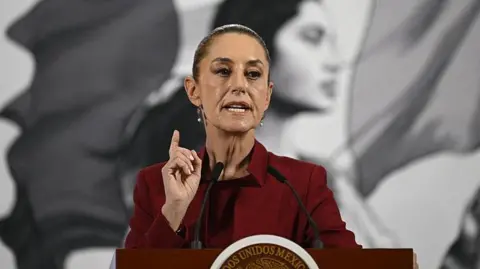The 'Gulf of America' Controversy: Renaming the Gulf of Mexico and Its Global Impact

The ongoing debate over the renaming of the Gulf of Mexico to the "Gulf of America" has stirred international concern. This issue has attracted attention from political leaders, tech giants, and the global public. The controversy raises questions of sovereignty, regional identity, and international diplomacy.
Background: What Is the Gulf of America Debate?
The "Gulf of America" refers to recent attempts by some U.S. political figures and agencies to rename the Gulf of Mexico, particularly in federal documents and mapping platforms. The move became especially controversial when Google, responding to updates from official U.S. sources, modified Google Maps for American users to display "Gulf of America" instead of "Gulf of Mexico."
This decision triggered immediate backlash from Mexico and other neighboring countries. As reported by the BBC, the Mexican government filed a lawsuit against Google, requesting the tech company return to the traditional name for all users, pointing out that such a change alters the perception of ownership and territorial rights.
Political and Diplomatic Repercussions
The controversy intensified after an executive order signed by then-President Donald Trump directed U.S. federal agencies to use "Gulf of America" in official documents. This directive was justified by claims that most work in the region is conducted by the United States, a stance not shared by Mexico or other bordering nations. Mexican President Claudia Sheinbaum argued that the renaming only applies to the U.S. portion of the continental shelf and not the entire gulf. As Sheinbaum stated, "The US lacks the authority to rename the entire gulf."
Google defended the update by citing its long-standing practice of following naming updates from official governmental sources. However, the company assured that the change would not appear for users in Mexico, and in many regions, both names are now displayed for clarity. You can learn more about the legal challenges and the diplomatic standoff in this coverage on the Mexico sues Google over 'Gulf of America' name change.
Media Responses and Broader Implications
The introduction of the term "Gulf of America" has also sparked tension between the U.S. administration and international media. The Associated Press refused to adopt the new terminology, leading to friction with the White House. This dispute escalated to the point where the AP’s access to certain official events was restricted, only resolving after a federal judge intervened. This episode highlights how naming conventions in geography can have powerful ripple effects on media freedom and diplomatic relations.
Moreover, the U.S. government’s approach to naming extends beyond North America. During an upcoming visit to Saudi Arabia, there were indications that the U.S. might also refer to the "Persian Gulf" as the "Arabian Gulf," further showcasing the geopolitical significance of naming regional waters.
Conclusion: The Future of the Gulf's Name
The debate over the "Gulf of America" is more than a matter of semantics. It brings to light how names can shape national identity, geopolitical relationships, and cross-border cooperation. As legal battles and diplomatic discussions continue, the world will watch how digital platforms and international agencies respond. Staying informed about updates from reliable news sources ensures a more accurate understanding of this evolving situation.
For more insights and developments, refer to the BBC article on Mexico sues Google over 'Gulf of America' name change.